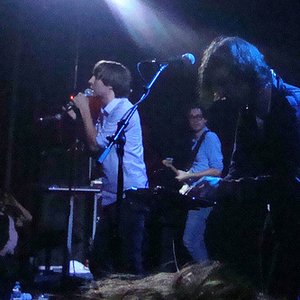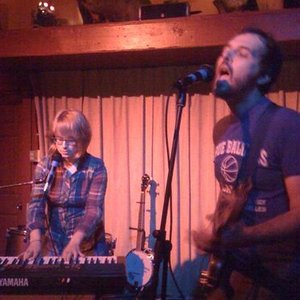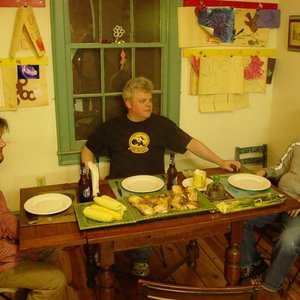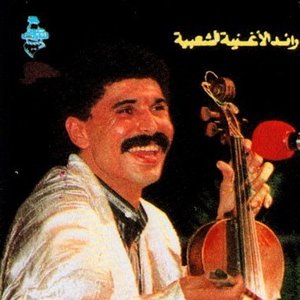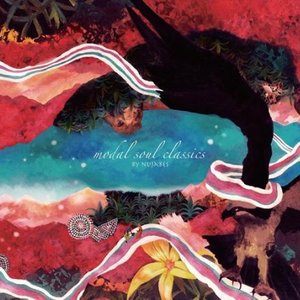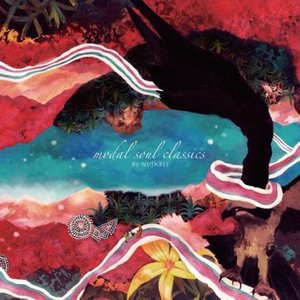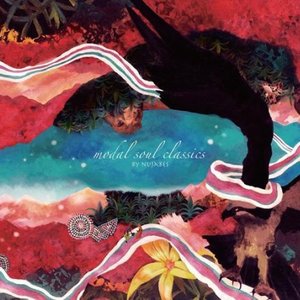Biography
1)
For a couple of years now, Folklore has been kicking around Athens (and some other places, with a few brief tours, mostly with their friends Summer Hymns), steadily building positive word-of-mouth. It might surprise you to learn that in such a short time they’ve already released two albums in limited pressings and various incarnations. Essentially the first two Folklore albums are flip sides of the whole, telling the same story, although stylistically they’re drastically different. Together, they present a band that’s quickly emerging as one of the top bands to emerge from Athens in recent years. The first, The Ghost of H.W. Beaverman, was peddled at shows for a while before finally getting an official release earlier this year on Athens’ Bumblebear Records. Co-credited to singer/songwriter Jimmy Hughes (also a guitarist for Elf Power) and, er, folklore researcher James P. Hughes, Jr., the album initiates listeners to the conflicting strands of information regarding H.W. Beaverman, supposedly a phantom haunting Lake Bonaparte in northern New York state. As the folklorist Hughes states in the liner notes, “It was a late summer night when the legend was presented to me by one bewildered young boy who swore he had seen H.W. Beaverman’s ghost cross the bay, just as his older brother and a friend were playing with a handmade Ouija board down by the water… So I became obsessed with this character, and each person I met had a new take on the legend, or the man, as I started to question more and more the difference between the two; or if a man like this could even exist outside the realm of rumors.” The album itself, then, presents itself as a collection of excerpts from eyewitness accounts and interviews with purported Beaverman experts. The song titles follow this form: “The Kid,” “The Father,” “The Bartender,” “The Vet,” etc. Appropriately, though ingeniously, he’s assembled for his cast a number of different vocalists from other Athens bands. Singing on this first Folklore album are Andrew Rieger (Elf Power), Jon Croxton (Wee Turtles), Amy Dykes (I am the World Trade Center), Bren Mead (Masters of the Hemisphere), Heather McIntosh (The Instruments), Scott Spillane (The Gerbils), Ian Rickert (Bugs Eat Books), and Hughes himself. Miraculously, it doesn’t sound like a compilation album, although each singer manages to flavor his or her track with a unique style; neither does it feel weighed down with concept album aspirations. The Ghost of H.W. Beaverman is united by Hughes’ surprising strength as both a songwriter and as a storyteller. And while “The Kid” might sound a little like an Elf Power track, and “The Ghost” might sound like something by The Instruments, when played as an album the consistent voice that rises from the material is Hughes’. Much of the material here is exceptional, in particular the stirring “H.W. Beaverman” (with Spillane’s voice rising like a troll from under a bridge), the rocking “The Kid,” and the breezy, beautiful “The Vet.”
The follow-up, Carpenter’s Falls, began life as a brief tour-only EP. Although in interviews Hughes talked up a second album that would pay homage to Animal Farm, he took a second look at his EP and decided to expand it from five to twelve tracks, revisiting Lake Bonaparte and Mr. Beaverman with another full-length that acts like the dark underbelly of the first album. It is a much, much darker album in fact, moodier, overtly psychedelic. Right away Hughes announces his new approach with the lyrics to “The Beginning,” which envisions the primordial formation of the lake and its surroundings, but with visceral imagery: “The brain leaks blood like wine, creating the lakeland we farm…the brain dried up like cum, creating the moments we live…” Then it’s back to the Beaverman story, with more interpretations of the legend, more revelations to be undermined elsewhere. (The world of Folklore is like Kurosawa’s Rashomon, as he sings on “The Corrections”: “Lips emerging from different perspectives, second-guessed and accepted as truth.” ) Carpenter’s Falls hands itself over entirely to Hughes’ vocals (no guests here, although the stellar band line-up is firmly in place: Dark Meat’s Aaron Jollay on bass and trombone; Jon Croxton on drums; Ian Rickert on clarinet; Raoul De La Cruz on trumpet; David Specht on keyboards; with Circulatory System’s Derek Almstead mastering the album). It’s startling to hear the band redefine itself so dramatically. “Across the Susquehanna,” which builds from relative quiet to some feral screaming, heads deep into Jim Morrison territory. The sitar-driven “The Beginning,” lyrics aside, harken to hypnotic, lesser-known 60’s bands like Mad River. This isn’t to say that there aren’t highlights in a poppier mold: “The Corrections,” “Two Cousins’ Camp Store,” and “The Carpenter,” for example, which when placed in context with the swampier, gloomier stuff provides a kind of emotional resolution. In other words, the craftsmanship and thoughtfulness are just as strong on Carpenter’s Falls; it’s not padding or an afterthought, but a worthy second record and well worth seeking out. Listen to both and tell your friends you read a novel.
In January 2009 'The Ghost of H.W. Beaverman' was digitally reissued on Irish label Indiecater Records.
2) Folklore
Andalusian traditional songs, flamenco
3) A Belfast-based Irish folk group active in the 1970s.
Artist descriptions on Last.fm are editable by everyone. Feel free to contribute!
All user-contributed text on this page is available under the Creative Commons Attribution-ShareAlike License; additional terms may apply.

